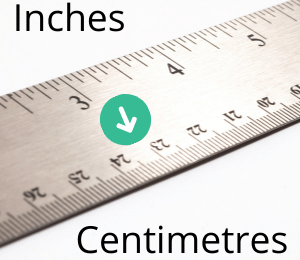Why study Physics?
Students have different reasons for choosing a program in Physics. Some of them want to develop forefront ideas in science and technology, while others dream of a teaching career. Having a degree in this field allows graduates to work on research in astrophysics, cosmology, particle, and atomic physics, or in more applied areas, such as renewable energy, materials development, quantum information science, biophysics, or medical physics. As you may understand, studying Physics at university allows working in numerous spheres such as medicine, law, history of science, science writing, philosophy of science, science or energy policy, and event management in technical fields.
Physics is a perfect fit for those who want to understand how things in the universe work at scales ranging from subatomic to cosmological level. Young people often choose the program in this science because it can satisfy their curiosity about the world around them. What’s more, it teaches them to think critically and develop problem-solving skills that are valuable in different areas.
Since Physics programs are quite complicated, students often need help with their studies. Typically, they turn to their peers or instructors but it doesn’t always end well. Professors may think that students don’t make enough effort to understand the subject, so their image may be disrupted, while peers’ help is less likely to be effective. Luckily, it’s not a problem to receive help from Physics tutors at Edubirdie, which is a top-rated assignment writing platform. Their website offers a wide range of services for students who have issues with homework. Professionals from Edubirdie can complete a research paper or a project and explain the point difficult for understanding.
So if you feel inspired to study this subject in order to drive technology advancements, impact society and the environment, consider some of the best universities listed below!

MIT
MIT offers both undergraduate and postgraduate degrees in Physics. The first one allows you to choose among two tracks to the major — Flexible or Focus one. The Flexible track provides rigorous courses in fundamental topics and enables completing second majors in other disciplines, while the Focus track offers specific courses, including experimental physics. Both of them lead to a Bachelor of Science in Physics and provide an excellent basis for graduate study.
Approximately 45 students start and graduate a doctoral program in Physics every year. It typically takes 5 to 7 years to get a Ph.D. degree at MIT. To complete the program, one has to pass a written exam in Classical Mechanics, Electricity & Magnetism, Quantum, and Statistical Mechanics and conduct thesis research.
Stanford University
Stanford’s undergraduate program gives students a strong academic foundation in both classical and modern physics. Its goal is to teach young people quantitative problem-solving skills and the ability to conduct experiments, which are useful to succeed in any science. During their study, students will also learn how to analyze and interpret data acquired through both coursework and independent research. This program prepares young people for careers not only in any field that requires quantitative and analytical thinking.
Graduate programs at Stanford University provide students with research opportunities in many areas of Physics. At the end of the program, graduates will be fully prepared for a professional career or doctoral studies. What’s more, the Department of Physics works to support all its students through fellowships, teaching, or research assistantships.
The University of Cambridge
Undergraduates are required to study three experimental sciences and mathematics in the first year of the program. During the second and third years, they focus solely on physics and mathematics. After that, they can graduate with a bachelor’s degree. However, most students decide to extend their studies for one more year to obtain an MSci degree. In the fourth year, they take various master’s level courses in Physics and related disciplines as well as work on an advanced project.
The University of Cambridge offers five graduate programs in Physics, they are the following: MASt and MPhil in Physics, MPhil in Scientific Computing, Ph.D. in Physics, and Ph.D. in Computational Methods for Materials Science.
Harvard University
The Harvard Physics Department graduates about 50-60 majors a year. The hallmark of its undergraduate program is flexibility. A lot of students choose joint courses, such as Physics-Mathematics, -Astronomy, or -History of Science. According to the statistics, approximately 40-50% of them go to graduate school in Physics or a related field, while others pursue various degrees in a medical, law, and business school or get immediately employed. Also, many undergraduates take part in an independent research course supervised by faculty members.
Graduate programs at Harvard offer a wide range of subjects and a lot of exciting opportunities for students. They have a chance to work in advanced facilities and learn from postdoctoral fellows. Graduate students can research a wide range of areas, including atomic, molecular, and condensed-matter physics, quantum optics, bio- and astrophysics, mathematical and high-energy particle physics as well as the physics of solids and fluids,
The University of Oxford
If you are going to study in the UK, then you should consider the University of Oxford as it has one of the largest physics departments in the country that offers outstanding programs in Astrophysics, Oceanic and Planetary Physics, Atomic and Laser Physics, Atmospheric, Condensed Matter Physics, Particle Physics, and Theoretical Physics. Even though studying Physics at Oxford is really challenging, it’s worth efforts as one can benefit a lot from ultramodern facilities and teaching laboratories. What’s more, students can explore scientific concepts with experts in the field and learn from physicists actively involved in the research. Postgraduate programs cover a broad range of research topics and typically take 3 or 4 years of study.
Author’s BIO
Julius Sim is Head of the Support Team at Edubirdie, which is one of the leading writing platforms in the world. Julius is responsible for the high quality of services provided to students who need help with their assignments. He leads the team to ensure great customer support and deliver excellent papers to clients.
MORE FOR YOU:





